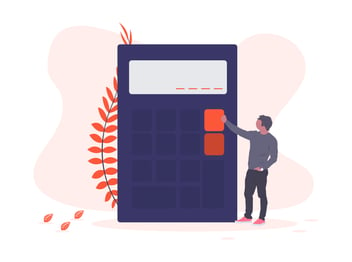Payday Super: Everything Small Business Owners Need to Know
.png)
The Australian government has announced a big change in the way superannuation payments are made. From July 2026, superannuation payments will need to be made on pay day. This means moving from quarterly super payments to payments that align with your pay cycle (weekly or fortnightly for most small businesses).
While the changes are not yet law, the bills have (as of 9 October, 2025) recently been introduced to parliament, so it seems extremely likely that this change is going ahead.
Update 10 November, 2025: The bills passed both houses and received Royal Assent on 6 November, 2025, so it is definitely happening.
What is Payday Super?
Payday Super is pretty much what it sounds like — as an employer, you'll have to make payments to your employees' super funds at the same time you pay their regular wages.
If your super contributions arrive more than 7 business days after pay day, you may be liable for additional charges and penalties.
Because it takes some time for the money to be processed by your bank, the super fund's bank and any clearing house in the middle, in practical terms you'll need to plan to be making super payments on the same day as paying wages.
You also need to make an electronic report of the payment to the ATO. This is called SuperStream reporting.
Why Has Payday Super Been Introduced?
Every year thousands of Australian businesses go into administration owing superannuation to their employees. And, while the numbers are small, there are also unscrupulous businesses who underpay (or don't pay at all!) super contributions for their staff or contractors.
The ATO position is that "Non-payment and underpayment of superannuation is equivalent to wage theft and has significant impacts on retirement outcomes." Payday Super will help address this.
How Will Payday Super Affect Small Businesses?
There are a few impacts you need to be aware of:
1. Impact on Cashflow
Paying superannuation contributions more regularly will have an impact on your cashflow. Simply, if you are waiting to be paid by your customer and have to make super payments to your staff, you might find you don't have enough money on hand.
Did you know that poor cashflow management is one of the leading causes of business failure in Australia?
Tip to Prepare
If you have customers who enforce long payment terms on you, now is the time to re-negotiate. Learn more in our handy article: Dear Small Business Owners, You Deserve to be Paid On Time.
2. More time on Admin
Paying super every week or fortnight is yet another admin task to add to your calendar.
Whether you do it yourself, or you have an admin assistant or bookkeeper helping you out, it's undoubtedly more work doing it once a week than once a quarter!
Tip to Prepare
Use payroll software that is easy. With Payday Super-ready super payments included in all Easy Business App payroll plans, you can pay super and report the necessary payments to the ATO in just a couple of clicks.
3. Penalties for Non-compliance
If you are late with your superannuation payments, you will have to pay the Superannuation Guarantee Charge. This includes interest and administrative penalties. Repeated non-compliance may result in penalties being applied.
Tip to Prepare
Start paying super at payday before July 2026, so you can get used to the process and impacts before you become liable for any charges or penalties.
What Happened to the Small Business Superannuation Clearing House (SBSCH)?
The Small Business Superannuation Clearing House (SBSCH) was a free service provided by the ATO to enable small businesses with a turnover of less than $10m and fewer than 20 employees to pay their super in one easy payment.
As of 1 October 2025, the SBSCH is no longer accepting new registrations. This means any new businesses will have to use payroll software with super payments and reporting built in, or make individual payments to the super funds of each of their employees.
From July 2026, the SBSCH will shut down entirely.
The ATO anticipates that the vast majority of small businesses will use payroll software to report and pay their superannuation. And given you already have to report Single Touch Payroll (STP) electronically too, this does make some kind of sense.
What's the Best Payday Super Option for Small Businesses?
We're a bit biased here, but guess what? We think it's Easy Business App 🤣

And here's why:
- Super payments (and SuperStream reporting) are included at no additional cost in all Easy Business App payroll plans. Our cheapest plan supports up to 4 employees and is just $9.95/month.
- We are Australia's only end-to-end mobile payroll app. You can complete the entire payroll process: setting up employees, creating and emailing payslips, lodging STP and paying super all from your choice of device: phone, tablet or web.
- Around 50% of our users complete their payslips each week from a phone or tablet!
- We have award-winning support, with a live support team contactable by phone, live chat or email, based right here in Sydney.
- We're rated Australia's Best accounting software by TrustPilot — with thousands of five star reviews across our review sites and the app stores.
- We're loved by your bookkeeper and accountant too, with all the "proper" accounting functionality they need to do their job at BAS and tax time.
.png?width=812&height=188&name=Easy-Business-app-(colour).png)


